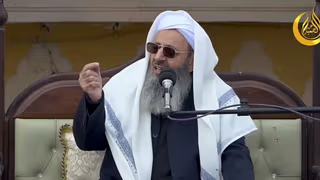Majid Mohammadi
Contributor
Majid Mohammadi is an Iranian-American sociologist and political analyst, who contributes opinion and analysis to Persian, Arabic, and English news outlets. He has published dozens of books.
Contributor
Majid Mohammadi is an Iranian-American sociologist and political analyst, who contributes opinion and analysis to Persian, Arabic, and English news outlets. He has published dozens of books.
The prospect of an Israeli attack on Iran has sparked new tensions within Iran’s opposition. Over 360 leftists, woke activists, and former Islamist/religious-nationalist figures have issued a statement titled "No to war, no to the Islamic Republic."
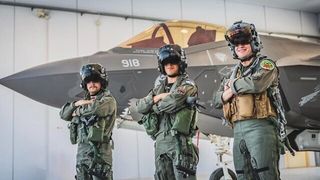
Following Israel's October 4, 2024, strike on Beirut, which targeted Hashem Safiuddin, a potential successor to Hezbollah leader Hassan Nasrallah, speculation has also arisen regarding the status of Ismail Qa’ani, the chief commander of the Quds Force.
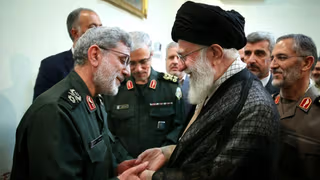
After two months of warnings, Iran’s Islamist government attacked Israel on October 1, 2024, with 200 ballistic missiles. Iranians and Israelis watched as missiles flew over cities, debris falling from the sky after being intercepted.
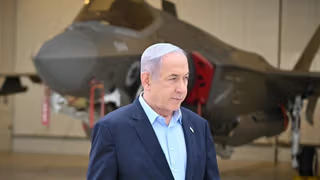
Last week, exiled Iranian Crown Prince Reza Pahlavi outlined his vision for a prosperous Iran post-revolution, but it requires further refinement and expansion to address key aspects of the country's political economy.
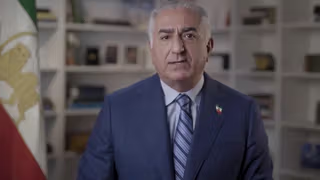
Despite Iran’s new president, Masoud Pezeshkian, pledging to end harassment by the notorious 'morality police' over violent hijab enforcement, the parliament has moved forward with passing a new restrictive law.

Iran’s Mahsa movement (2022-2023) was a non-violent uprising aimed at overthrowing the Islamic rule established in 1979. The government’s sole response was to suppress the protestors because of the movement’s objective.
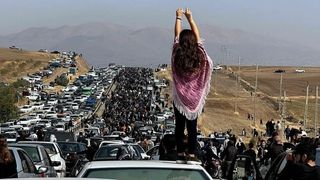
Foreigners are often baffled by the vague, poetic, and indirect way Iranian officials speak, while Iranians, though more accustomed to this style of communication, often find it frustrating as well.
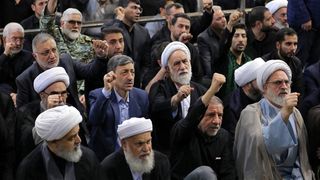
This week, Iran's new president, Masoud Pezeshkian, pledged an "economic surgery" to address the nation’s worsening crisis. With millions of impoverished citizens expecting relief, he faces mounting pressure to deliver reforms.
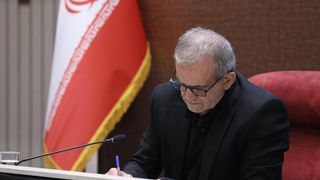
As newly elected President Masoud Pezeshkian formed his cabinet, the country’s Supreme Leader—widely recognized as the ultimate authority in Iran—made a vain effort to appear detached from the selection process.
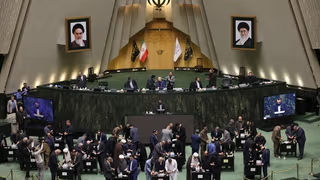
As the Iranian Parliament conducts hearings for President Masoud Pezeshkian’s proposed cabinet, a new wave of strikes has swept across the country, as economic hardship continues for the sixth consecutive year.
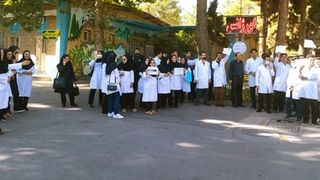
Iran’s new president, Masoud Pezeshkian, was scheduled to present the core of his executive plan during a 2.5-hour speech on the first day of the parliament proceedings to review his plan and cabinet.
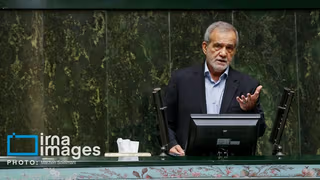
Despite former Iranian foreign minister Javad Zarif's prior announcement that he would not hold a position in the Pezeshkian administration, he was appointed deputy for strategic affairs to the new president.
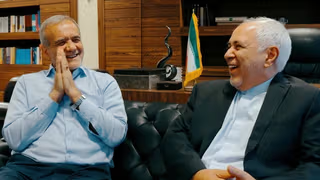
As the Iranian state is determined to display its strength in the Middle East, not least by confronting Israel through its various proxies – it ultimately faces mounting challenges in sustaining its authority within its own borders.
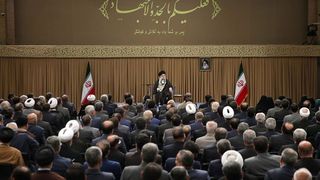
Last week, former Iranian Foreign Minister Javad Zarif advocated for diversity in selecting the new cabinet, despite the Islamic Republic's history of repressing dissent and even internal critics.
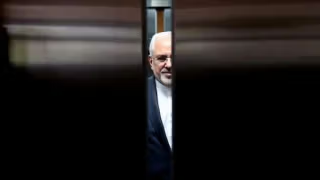
In its latest move, Iran’s “Reform Front” says it will not interfere in newly-elected President Pezeshkian’s decisions, but will instead support his administration and question decisions when necessary.
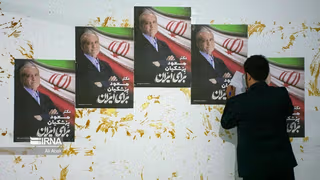
Immediately following Masoud Pezeshkian's victory over Saeed Jalili in Iran’s heavily manipulated presidential election, most Western media outlets and news agencies labeled him as a “reformist” and “moderate.”
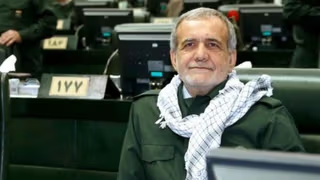
The Iranian presidential election has demonstrated yet another attempt by Iran's "reformists" to try to change the Islamic Republic gradually instead of either accepting the status quo or agreeing with a revolution.
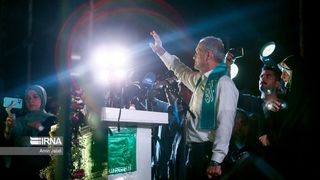
Even without trusting government-controlled election figures over the years, turnout has steadily decreased in Iran. The rulers of the Islamic Republic cannot deny the statistics from their own Ministry of Interior.
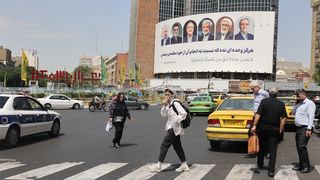
A significant portion of the Iranian population, reportedly up to two-thirds, perceive the meticulously orchestrated presidential elections as a "circus" and regard the debates as a boring and tedious spectacle.
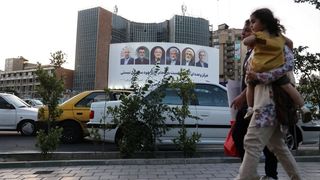
Masoud Pezeshkian, Iran’s pro-reform candidate, is notably non-combative and refrains from personal attacks on other candidates both in and outside of debates. When confronted with attacks, he remains silent.
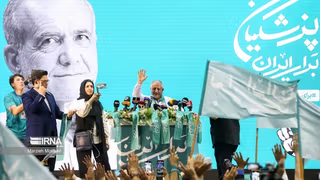
Experiencing tightly controlled and unfree elections for five decades, most voters in Iran have realized since 2020 that they do not have a meaningful role in electing their president or members of parliament.
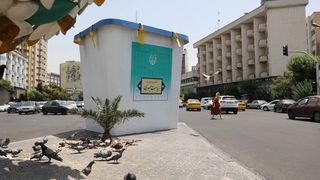
As the election campaign of six hand-picked candidates started in Iran on Monday, opposition groups in the diaspora condemned the process as “pseudo-elections,” calling for a boycott.
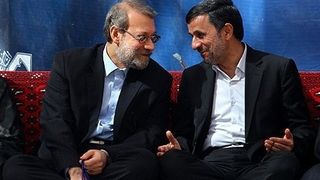
The prevailing consensus among Iranian analysts abroad is that President Ebrahim Raisi's death is unlikely to impact Tehran’s political and economic policies, as these are ultimately directed by Supreme Leader Ali Khamenei.
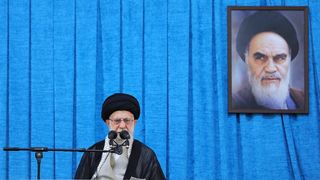
The sudden death of President Ebrahim Raisi and his companions in a helicopter crash on May 19, have revealed or accentuated some trends in Iranian politics.
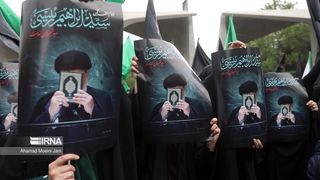
Government ceremonies in Iran have been Islamized since 1979, reflecting the transformation of the state into an Islamist entity. In this process, religious icons and ceremonies replaced national symbols and rituals.
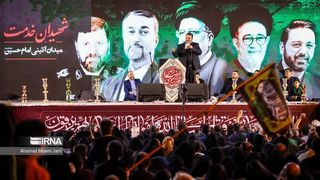
Nechirvan Barzani, the President of Iraq's Kurdistan Region, made an unexpected visit to Iran this week, where he met with top leaders, sparking strong criticism from opponents of the Iranian regime.
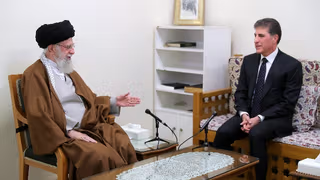
Protests at American university campuses may have had other goals, but their narrative instead served as clear evidence of how Islamists and Marxists can collaborate against Western values and US interests.
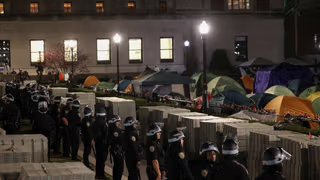
Despite recent public outcry and opposition to the construction of a mosque in one of Tehran’s public parks, the head of the city council definitely said: "We should build prayer rooms and mosques in all parks."
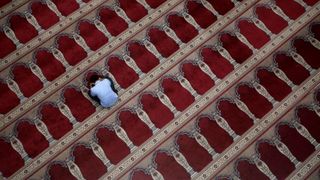
In response to Iran’s missile and drone attacks on Israel, the European Union and the United States announced their intention to impose more sanctions on those involved in Tehran’s weapons proliferation.
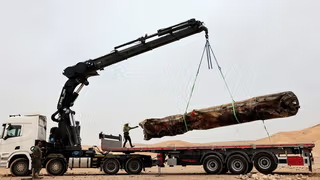
As Iranian women continue to defy the Islamic government in Tehran by shunning the hijab in ever-greater numbers, officials cling to the theory of foreign conspiracies to justify their crackdown.
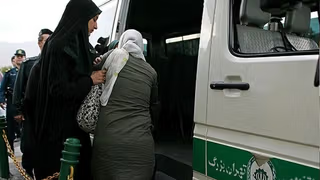
For the last 45 years, Iranians have resorted to using humor as a crutch in coping with the country’s various challenges – including the aftermath of the Islamic Revolution, ongoing economic struggles, and the nuclear crisis.
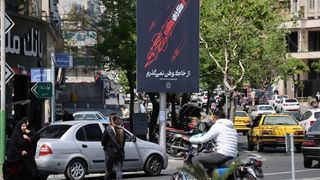
Reactions from authorized media commentators in Iran on Sunday to the attack on Israel were notably scarce, as they carefully avoided crossing any government red lines.
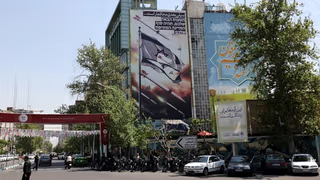
Analysis: For two decades, Iran's Supreme Leader's "nuclear fatwa" has served as a shield for Tehran's denial of nuclear weapon ambitions. But how trustworthy can this fatwa really be?
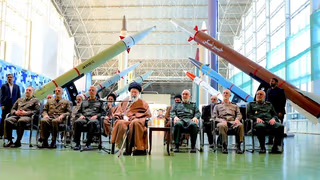
Opinion - One week following Israel's targeted strike on the Iranian embassy in Damascus, resulting in the deaths of seven high-ranking Quds Force officers, Tehran appears undecided on its response.
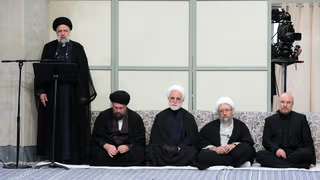
Israel’s attack on the Iranian embassy in Syria that killed two high-ranking generals occurred on the same day as the annual Persian New Years picnic celebration of Sizdah Be-dar – with some echoes of April Fools Day.
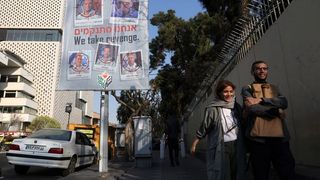
Forty-five years ago, on March 30, 1979, Ayatollah Ruhollah Khomeini led a referendum with a single question: “Do you want an Islamic Republic?”.
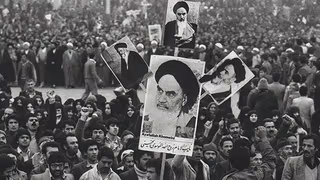
The assault carried out by several unidentified individuals wielding knives against Pouria Zeraati, an Iran International TV host, served as a glaring wake-up call that should have resonated four decades ago.
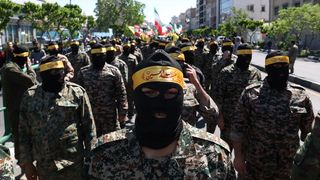
This year, the Islamic month of Ramadan coincided with the ancient Persian celebration of New Year (Norouz). Urged by authorities to follow fasting traditions, Iranians were asked not to travel during Ramadan.
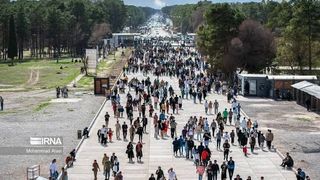
Upon leaving office, politicians often resort to writing books to claim that: "I was an important person. I did my job well. They did not appreciate me. Now, you can take advantage and benefit from my experience."
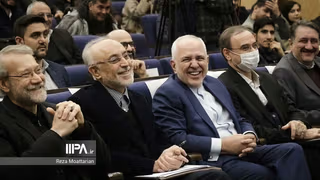
The past year was a tough one for all Iranians: 44% official inflation rate, tens of millions living in poverty, quadrupling of executions in just four years, and alarming levels of unemployment.

Iran's regime dubs its regional armed groups "resistance forces," while opponents label them mercenaries. Many ordinary Iranians view them as terrorists who exploit their country's resources.
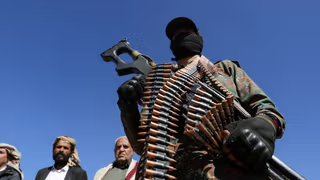
Iran’s Supreme Leader will not give a speech in Mashhad on the occasion of Persian New Year Norouz – with the cited excuse that this year Ramadan, the Islamic fasting month, coincides with the ancient Persian festivities.

A notable paradox in population dynamics has emerged recently in Iran.
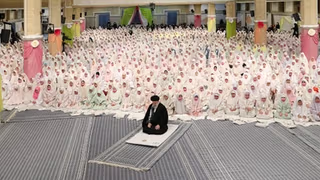
The dust has settled on the highly engineered 2024 parliamentary election polls in Iran, prompting an evaluation of the management mechanisms and outcomes for the regime.
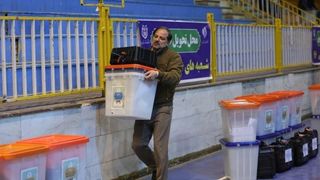
Opinion -- When Princeton University hired Hossein Mousavian in 2009, I believed he had defected from the Iranian regime, relocated to the United States, and aimed to work against it.

The recent Assembly of Experts engineered elections in Iran reflect a notable shift in the assembly's composition, beyond just the disqualification of certain candidates.
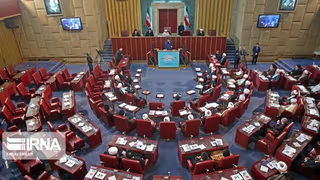
Two significant trends mark the orchestrated 2024 elections in Iran: the notable significance of invalid or blank votes and the strife among winning factions loyal to Khamenei.
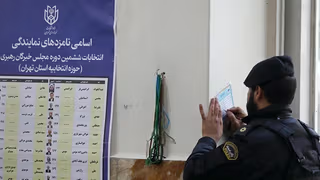
The IRGC-affiliated Fars news website claimed a turnout of more than 40% after polls closed at midnight in Iran's controversial elections, despite numerous reports indicating lackluster participation.
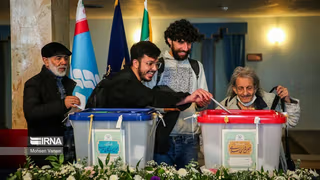
One of the oddities in Iranian elections over the years is the dwindling presence of clerics in parliament, while the regime shifts towards greater ideological rigidity and less tolerance.
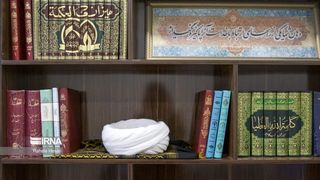
The 2024 elections in Iran mirror past ones under the Islamist regime in various aspects, such as the arbitrary disqualification of candidates, and dwindling participation rates.
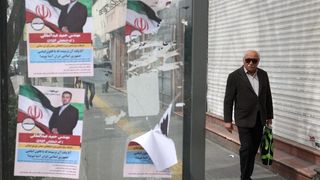
With only ten days remaining before the March 1 elections in Iran, politicians are still weighing the advantages and disadvantages of participating in the vote amidst broad government electoral manipulations.
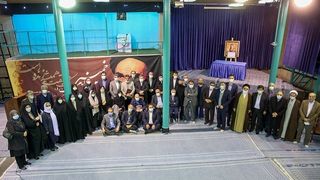
Two pivotal developments are casting significant doubt on the viability of religious reformist movements in Iran, that have tried to present a more liberal view of Shia Islam.
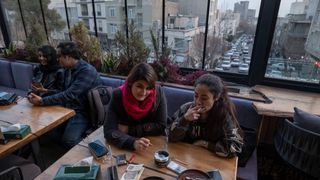
In the lead-up to the 45th anniversary of the 1979 revolution and the March 1 elections, Iranian officials have escalated their rhetoric, resorting to outrageous statements and unfounded claims.
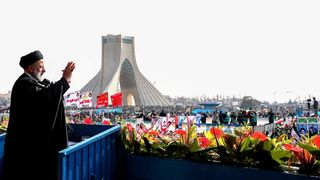
Football, or soccer, stands as Iran's most beloved sport, captivating millions from local alleyways to international stadiums, and it has taken sharp political dimensions.
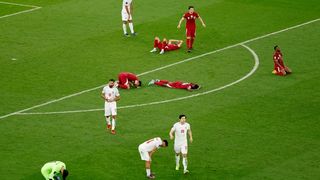
Iran's modern public education system, established in the 1930s as one of the first in the Middle East, is increasingly falling under clerical control while suffering from a lack of investments.
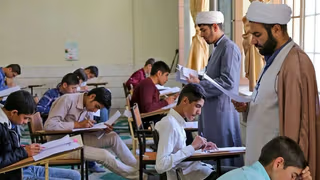
Discussions persist in Iran over the contentious ban imposed by regime hardliners preventing former President Hassan Rouhani from running in the March 1 elections.
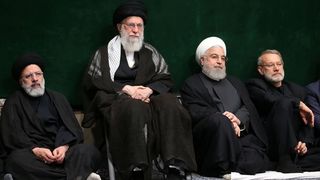
A new term was coined during the 2022-2023 Iranian protests to describe crtain individuals as “players in the middle,” who tried not to oppose the Islamic regime.
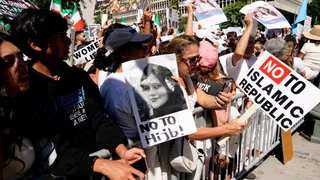
After nearly 45 years of Ali Khamenei’s rule in Iran, the most important question for many is what will happen after his death, a smooth or a rocky transition.
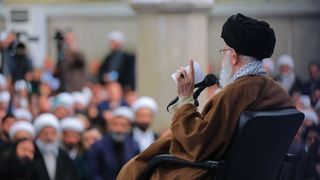
Former football star, Ali Karimi, is now a social heavyweight in Iran, with 15 million Instagram followers - no longer as a soccer hero but as a political influencer.
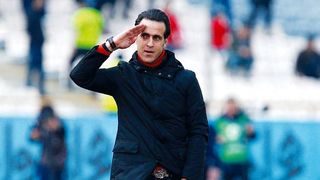
Here's what we do and don't know about Generation Z in Iran. We know that it has distanced itself from the anti-imperialist and Islamist ideas of the 1979 Revolution.

With the announcement of the disqualification of thousands of candidates in November 2023, the orchestrated parliamentary elections in Iran reached a new low.
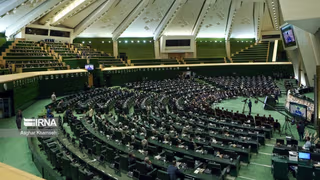
The Islamic Republic in Iran and the Erdogan regime in Turkey act with remarkable similarity in using religion to gain loyal followers in the West.
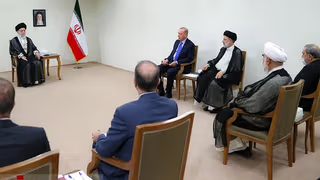
The Islamic Republic is using Iranian students abroad, including those on government scholarships, to pursue its Islamist agenda.
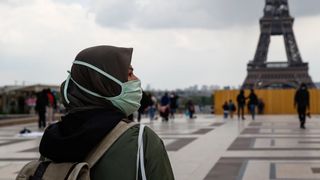
What if a Sunni imam plays a central role in advocating for freedom in a Shia-majority country ruled by Shiite clerics and gains significant traction.
